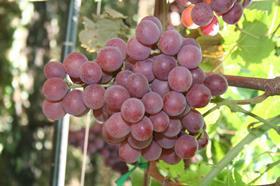
A rise in seedless grape production is opening up new markets for Murcian exporters. They now make up Spain’s leading export item to South Africa and shipments to this market have increased five-fold in the space of a few years.
New plantings of licensed varieties and genetic improvement programmes such as that run by Murcia’s Institute of Agrifood Research and Development (Imida) are helping to breathe new life into the industry. The region is home to virtually all of the country’s seedless volume and also accounts for the bulk of its exports, shipping 70 per cent of the national crop.
The Imida programme is one of the four most important genetic improvement schemes in the world. Each year it creates some 10,000 hybrids of which those with the most potential are selected for commercial trials. At last year’s Fruit Attraction trade fair the 12 most promising cultivars to emerge from the programme were presented to the trade.
“Around 250ha of these are currently under production in Murcia and they are being sold throughout Europe as well as in South Africa and South America,” says ángel García, director general for agrifood and training at the regional Department of Agriculture and Water. “There’s no doubt that Murcia’s table grape industry is undergoing an important transformation in its varietal make-up.”
Spain’s growing presence in South Africa is evidence of market diversification strategy which has brought a notable increase in shipments to non-European countries. Figures from Fepex show that in 2014, exports to Brazil increased 25 per cent to €70.4m, while shipments to Canada rose 165 per cent to €58.5m and exports to Algeria reached €56.3m, a 25 per cent increase on the previous year.



